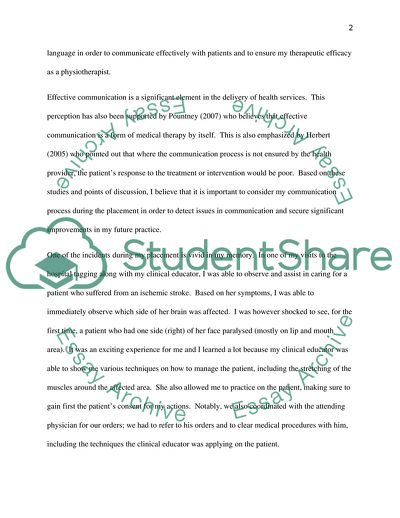Cite this document
(Critical Reflection Report Example | Topics and Well Written Essays - 2000 words, n.d.)
Critical Reflection Report Example | Topics and Well Written Essays - 2000 words. https://studentshare.org/psychology/1785394-a-critical-and-reflective-interpretation-of-my-learning-following-my-elective-placement-making-progress-in-learning-through-experience
Critical Reflection Report Example | Topics and Well Written Essays - 2000 words. https://studentshare.org/psychology/1785394-a-critical-and-reflective-interpretation-of-my-learning-following-my-elective-placement-making-progress-in-learning-through-experience
(Critical Reflection Report Example | Topics and Well Written Essays - 2000 Words)
Critical Reflection Report Example | Topics and Well Written Essays - 2000 Words. https://studentshare.org/psychology/1785394-a-critical-and-reflective-interpretation-of-my-learning-following-my-elective-placement-making-progress-in-learning-through-experience.
Critical Reflection Report Example | Topics and Well Written Essays - 2000 Words. https://studentshare.org/psychology/1785394-a-critical-and-reflective-interpretation-of-my-learning-following-my-elective-placement-making-progress-in-learning-through-experience.
“Critical Reflection Report Example | Topics and Well Written Essays - 2000 Words”. https://studentshare.org/psychology/1785394-a-critical-and-reflective-interpretation-of-my-learning-following-my-elective-placement-making-progress-in-learning-through-experience.


